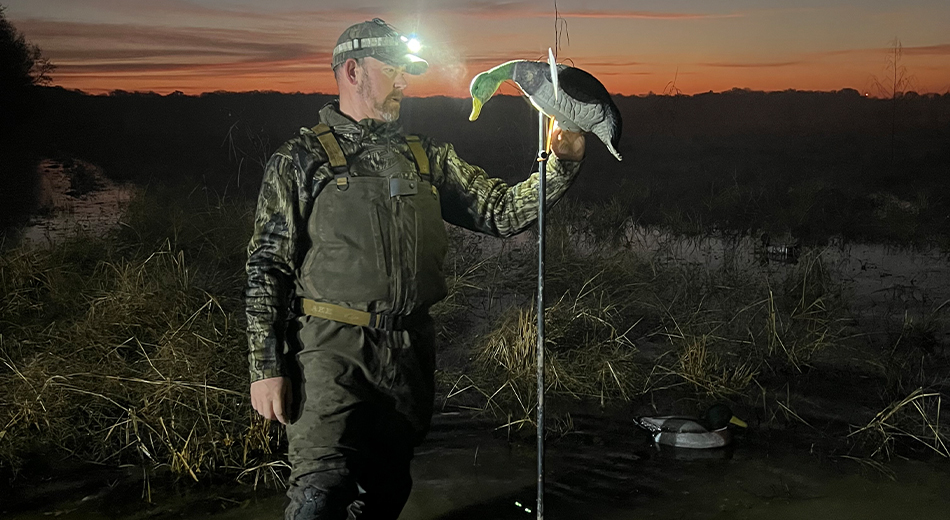
Delta Waterfowl Supports USFWS Annual Hunt Fish Rule
Migratory bird hunting opportunities would expand on four federal refuges; Public can submit comments until June 30
BISMARCK, NORTH DAKOTA — The U.S. Fish and Wildlife Service has released its proposed 2025 Hunt Fish Rule, seeking to open or expand 42 new hunting and sport fishing opportunities across more than 87,000 acres within the National Wildlife Refuge System and National Fish Hatchery System. Delta Waterfowl strongly supports this proposal and is urging its members and all duck hunters to submit comments through the Duck Hunters Action Alert System before the June 30 deadline.
“This proposed rule is another step forward towards increasing access for waterfowl hunters across the country,” said Cyrus Baird, senior director of government affairs for Delta Waterfowl. “Delta has worked diligently with the U.S. Fish & Wildlife Service and leadership in multiple administrations to ensure that National Wildlife Refuges continue to provide high quality access and opportunity for hunters. This rule reflects progress, and we will continue to advocate for more openings where appropriate in the future.”
The annual Hunt Fish Rule is an important process in which the USFWS evaluates public access across federal lands and proposes new or expanded opportunities for hunting and fishing. Among the migratory bird hunting expansions in the 2025 proposal are Grays Lake NWR in Idaho, Shiawassee NWR in Michigan, Willapa NWR in Washington, and Grasslands Wildlife Management Area in California.
Delta Waterfowl emphasizes that access to high-quality waterfowl hunting remains constrained in many areas of North America. Refuges provide impactful access for America’s sportsmen and women. Waterfowl hunters continue to be the largest financial supporters of the refuge system through the purchase of Federal Duck Stamps. Since 1934, sales from Federal Duck Stamps have raised more than $1.2 billion to conserve more than 6 million acres of wetlands habitat.
“Providing new and expanded waterfowl hunting opportunities is not only appropriate, but also essential to the long-term strength of the National Wildlife Refuge System and the future of duck hunting,” Baird said. “Delta Waterfowl encourages every duck hunter to make their voice heard.”
Hunters can submit comments directly through Delta Waterfowl’s Duck Hunters Action Alert System, which provides a simple way to send official letters to the Federal Register in support of the proposed rule.
Delta Waterfowl is The Duck Hunters Organization, a leading conservation group working to produce ducks and secure the future of waterfowl hunting in North America. Visit deltawaterfowl.org.
For more information about Delta Waterfowl’s Duck Hunters Action Alert System for submitting comments, please contact Cyrus Baird at cbaird@deltawaterfowl.org.
